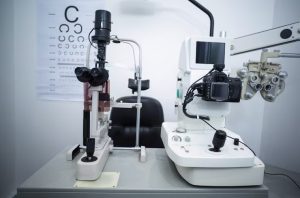All Categories
Featured
Table of Contents
Eye health is a vital part of overall wellness, and normal eye exams play a vital duty in preserving great vision throughout life. Each age group has specific needs and dangers connected to eye wellness, making it necessary to follow customized referrals for eye exams. Right here's a comprehensive introduction of exactly how usually eye tests need to be arranged for various age groups.
After the initial exam, kids should have a second eye assessment around age 3, when they can much better join screening and analysis. If no vision troubles are recognized, the next exam is advised prior to beginning college, commonly around age five. Early discovery of concerns can result in timely treatment and support healthy visual advancement.
Parents must seek indications of vision troubles, such as trouble checking out the blackboard, scrunching up your eyes, or complaining of headaches. If any of these signs arise, it is very important to schedule an eye test without delay. Children who take part in sports might gain from yearly eye exams to make certain optimal aesthetic efficiency and security throughout tasks.
![]()
Young people commonly experience electronic eye strain due to comprehensive display time, causing signs like dry skin and pain. If you observe these signs, looking for an eye examination is essential. An eye care specialist can offer remedies, such as computer system glasses or lifestyle changes, to ease strain.
For people with health and wellness conditions like diabetic issues or hypertension, more frequent tests might be required. Regular monitoring is important for early detection and monitoring of potential difficulties that can impact vision.
Senior citizens may likewise experience adjustments in their aesthetic perception, such as trouble seeing in low light or differentiating shades. Routine eye examinations permit timely intervention and assistance preserve freedom and lifestyle.
Babies (0-2 Years)
Babies undertake considerable aesthetic growth in their early years, making very early eye evaluations important. The American Academy of Pediatrics suggests that babies have their initial eye test at about 6 months old. This initial go to helps determine any prospective vision problems, such as strabismus (crossed eyes) or hereditary cataracts, which can impact advancement if not resolved early.After the initial exam, kids should have a second eye assessment around age 3, when they can much better join screening and analysis. If no vision troubles are recognized, the next exam is advised prior to beginning college, commonly around age five. Early discovery of concerns can result in timely treatment and support healthy visual advancement.
Children (3-18 Years)
For school-aged youngsters, normal eye tests are essential for both scholastic success and basic wellness. Children should have their eyes checked each to two years, relying on their specific needs. Institutions usually perform vision screenings, however these do not change extensive eye tests by an eye treatment expert.Parents must seek indications of vision troubles, such as trouble checking out the blackboard, scrunching up your eyes, or complaining of headaches. If any of these signs arise, it is very important to schedule an eye test without delay. Children who take part in sports might gain from yearly eye exams to make certain optimal aesthetic efficiency and security throughout tasks.
Young Person (19-39 Years)
During young the adult years, several individuals delight in relatively stable vision, but that doesn't indicate eye treatment can be neglected. Young person need to arrange comprehensive eye examinations every 2 years. Those who put on contact lenses or have a household history of eye illness should consider yearly tests.
Young people commonly experience electronic eye strain due to comprehensive display time, causing signs like dry skin and pain. If you observe these signs, looking for an eye examination is essential. An eye care specialist can offer remedies, such as computer system glasses or lifestyle changes, to ease strain.
Grownups (40-64 Years)
As individuals enter their 40s, modifications in vision can come to be much more apparent, especially presbyopia, a condition that makes it testing to concentrate on close items. Grownups in this age need to arrange eye tests each to two years. This is likewise the age when lots of eye diseases, such as glaucoma and diabetic retinopathy, can begin to create.For people with health and wellness conditions like diabetic issues or hypertension, more frequent tests might be required. Regular monitoring is important for early detection and monitoring of potential difficulties that can impact vision.
Seniors (65 Years and Older)
Elders go to an enhanced danger for different eye diseases, including cataracts, age-related macular deterioration, and glaucoma. It's advised that individuals aged 65 and older have an eye exam at the very least annually. Early discovery of these problems is important, as numerous can be dealt with properly if caught early.Senior citizens may likewise experience adjustments in their aesthetic perception, such as trouble seeing in low light or differentiating shades. Routine eye examinations permit timely intervention and assistance preserve freedom and lifestyle.
Verdict.
Prioritizing eye care and routine exams ensures that individuals can delight in clear vision and a far better high quality of life, making eye health a vital facet of lifelong wellness. Normal appointments with an eye treatment professional will certainly pave the means for healthier eyes and a brighter future.Latest Posts
Hail Damage and Your Roof: A Midwest Homeowner’s Guide
Published Nov 23, 24
1 min read
Top Features to Expect in the Latest Nissan Vehicles
Published Nov 23, 24
3 min read
The Role of Carpets in Improving Indoor Air Quality
Published Nov 23, 24
2 min read